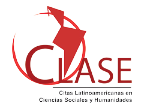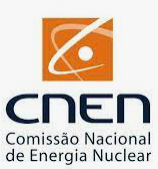Intencionalidade, objetividade e multiperspectividade: contribuições para a investigação da aprendizagem histórica dos jovens a partir dos filmes-históricos
DOI:
https://doi.org/10.5433/2238-3018.2013v19n2p193Palavras-chave:
Categorias Históricas, Objetividade, Intencionalidade, Multiperspectividade, Cognição HistóricaResumo
Lidar com as categorias do conhecimento no âmbito da interpretação histórica encontra-se entre os desafios para a investigação da aprendizagem histórica dos jovens estudantes. Entende-se, então, que a abordagem multiperspectivada dos acervos do saber histórico pode complexificar a relação dos sujeitos com o conhecimento, e colocar em evidência como determinadas categorias são mais relevantes nesse processo, especialmente quando se parte do ensino a partir de artefatos culturais, como ocorre no caso da utilização de filmes-históricos. Partindo desses pressupostos, o presente trabalho descreve um trajeto investigativo que partiu das concepções de jovens estudantes sobre os filmes-históricos e de suas noções e posicionamentos a respeito do Nazismo, e que pode levar à formulação de uma estratégia metodológica de investigação que privilegie o cinema como linguagem e dispositivo mobilizador da aprendizagem histórica. Propõe-se, assim, o entendimento de como as categorias da intencionalidade e da objetividade interpõem-se como complexas na relação de cognição histórica possibilitada por uma experiência com a multiperspectividade através dos filmes.
Downloads
Referências
LEE, P. Em direção a um conceito de Literacia Histórica. Educar em Revista, Curitiba, p. 131-150, 2006.
KOSELLECK, R. Por que aprender História? Educar em Revista, Curitiba, Brasil, n. 42, p. 19-42, out./dez. 2011.
LOWITH, K. O sentido da História. Lisboa: Edições 70, 1991. REIS, J. C. História e teoria: historicismo, modernidade, temporalidade e verdade. 3 ed. Rio de Janeiro: Ed. FGV, 2006.
RICOEUR, P. Tempo e Narrativa. São Paulo: Papirus, 1994.
RÜSEN, J. Razão Histórica. Teoria da história: os fundamentos da ciência histórica. Brasília: UNB, 2001.
RÜSEN, J. História Viva. Teoria da História III: formas e funções do conhecimento histórico. Tradução de Estevão Rezende Martins. Brasília: Ed. UNB, 2007.
RÜSEN, J. Jörn Rüsen e o Ensino de História. Curitiba: Ed. UFPR, 2010. SCHAFF, A. História e verdade. 2. ed. São Paulo: Martins Fontes, 1983.
SOUZA, É. C. O que o cinema pode ensinar sobre a História? Investigação sobre as ideias dos alunos a respeito do uso de filmes em aulas de História. História e Ensino. CLCH, UEL, Vol. 16, n.1, Agosto de 2010, p.25-39.
SOUZA, É. C. O uso do cinema no ensino de História: propostas recorrentes, dimensões teóricas e perspectivas da Educação Histórica. Revista Escritas, UFT, v. 4, 2012, p.70-93.
Downloads
Publicado
Como Citar
Edição
Seção
Licença
História & Ensino adota a licença CC-BY esta licença permite que os reutilizadores distribuam, remixem, adaptem e criem a partir do material em qualquer meio ou formato, desde que a atribuição seja dada ao criador. A licença permite o uso comercial.














